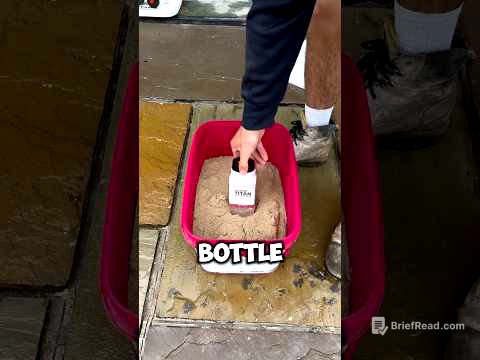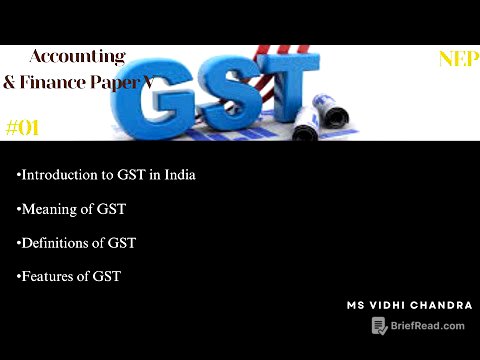TLDR;
This video explains the importance of property management systems (PMS) in the hotel industry. It highlights how PMS software helps hotels manage reservations, enhance guest experiences, and streamline back-office operations. The video emphasizes the significance of using customer data to personalize services and create memorable experiences, ultimately leading to customer satisfaction and positive reviews.
- PMS helps hotels manage reservations, enhance guest experiences, and streamline back-office operations.
- Effective use of customer data allows staff to create memorable guest experiences.
- Key modules include reservation management, revenue management, channel management, front desk operations, CRM, housekeeping, POS, back-office management, and reporting/analytics.
Intro [0:00]
The video starts by emphasizing the importance of human connection in the hotel industry, referencing a story about a hotel that impressed a guest by noticing his preference for a TV show from his Facebook profile. This illustrates how using customer data can create a memorable experience. The video then introduces the concept of a Property Management System (PMS) as a crucial tool for hotels to efficiently manage operations and enhance guest experiences.
What is Property Management System (PMS)? [1:48]
A Property Management System (PMS) is a software that helps hotels manage reservations and administrative tasks. It acts as a central command center for essential functions, from sending booking confirmations to issuing key cards and reporting on key performance indicators (KPIs). The PMS consists of various functional components or modules, depending on the vendor, the hotel's custom system, or a combination of both. These modules can be grouped into reservation and distribution, in-stay experience, and back-office and reporting.
Reservation and Distribution [2:46]
The reservation system is where hotels define rooms and track bookings by date. A Central Reservation System (CRS) manages room rates, processes bookings, collects payments, and sends booking confirmations. It integrates with the website booking engine and other distribution channels like meta-search engines and Online Travel Agencies (OTAs). Revenue management is crucial for choosing the right price for rooms, adjusting prices based on demand and occupancy rates. Revenue management modules use internal data (customer segments, inventory prices, occupancy rates) and external data (competitor prices, booking patterns, weather, events) to estimate optimal rates.
Channel Management [4:53]
Channel management is essential for showcasing properties on various websites to reach new guests. Channel management software manages inventory and price rates across multiple online travel agencies and automates bookings. It sets up a two-way connection between a hotel's PMS and online channels to keep availability and data up-to-date. The channel manager sends bookings made on third-party portals or the hotel's website to a central reservation system, preventing overbooking and maximizing inventory use.
Front Desk Operations [6:41]
The front desk module is the main tool for receptionists to perform their primary tasks. Staff can check and update room reservation status, check guests in and out, process payments, and issue key cards. These systems can integrate with check-in solutions, including self-check-in kiosks. Front desk managers also conduct night and shift audits. The front desk is a key point of interaction with guests, and these interactions can significantly impact the guest experience.
CRM and Customer Data Management [7:55]
Customer Relationship Management (CRM) involves managing interactions with current, past, and potential guests by analyzing data such as trip purpose, room type, length of stay, and ancillary services used. Hotels can offer personalized bonuses and maintain relationships after checkout through personalized emails. The CRM module integrates with the front desk and reservation system to gather all customer data.
Housekeeping [9:02]
The housekeeping module helps hotel staff and managers coordinate their actions. Managers can assign rooms to housekeepers, specify and update task lists, and monitor progress in real-time. Housekeepers can update room status, add details about minibar usage, and report malfunctions. The module also helps manage cleaning supplies, toiletries, bed linen, and other inventory.
Point-of-Sale (POS) Services [9:47]
Point-of-Sale (POS) systems manage transactions for products and services such as restaurant meals, minibar items, and spa services. Hotels can create and edit menu items, implement gift cards and loyalty programs, and manage staff shifts and payroll. POS software provides analytics and reporting via dashboards, optimizing the supply chain and providing insights into customer preferences.
Back-Office Management [10:54]
The back-office management module allows for inventory analysis and management of consumption costs like utility bills, taxes, insurance, and marketing expenses. It may also include event, workforce, and reviews management. Monitoring back-office operations provides a complete view of the property's performance, enabling informed decisions to improve service and performance.
Reporting and Analytics [11:33]
The reporting and analytics module monitors property performance against various measures. Managers can generate reports on metrics such as average daily rate, daily occupancy rates, and revenue per room. This module allows for month-to-date and year-to-date analysis, comparing current metrics with past values to understand hotel trends. Providers may also include automated report generation and custom report creation.
Conclusion [12:13]
The video concludes by reiterating that making guests feel welcome and comfortable is essential in the hospitality business. A property management system is a valuable tool for providing excellent service and creating a human connection, leading to positive reviews and customer satisfaction.









